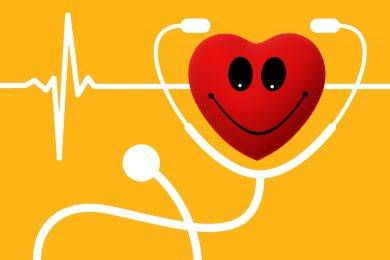“Does heart disease run in your family?”
While genetics play a vital role in disease risk, you can have a different outcome. How you live your life, and your choices have a more significant impact on your heart health.
Continue reading to learn five lifestyle tips on how to improve your heart health.
1. Maintain a Heart Healthy Diet
A heart-healthy diet is one of the best methods you can use to prevent heart disease.
Your diet should include whole grains, fruits, lean protein, nuts, and legumes. Foods to avoid include sugary beverages, cakes, pastry, donuts, and those that are high in calories but low in nutrients.
Always pay attention to food labels. It is essential that saturated fats are limited and substituted with better fats. Sodium is another culprit to be avoided when trying to promote heart health.
If you wish to lower your blood pressure, try scaling back to 1,500 milligrams of sodium per day. Reducing sugar and alcohol intake is also helpful in controlling blood pressure.
2. Exercise Daily
Developing a regular exercise routine has many health benefits.
Aerobic exercises allow your heart to beat faster. Activities such as running, walking, hiking, and swimming are great ways to prevent cardiovascular conditions.
Adults should participate in 150 minutes of moderate activity daily. If you wish to exercise more vigorously, you can achieve the maximum health benefits with 75 minutes of vigorous physical activity.
If you are starting a new exercise routine, always remember to start with a lower intensity and shorter duration. Exercise allows your heart to become stronger and more endurance towards demanding cardiovascular activities.
3. Reduce Stress and Follow Heart-Healthy Lifestyle Tips
Reducing stress is paramount in keeping cardiovascular conditions at bay.
Meditation can be a great way to reduce stress—meditating triggers the body’s relaxation response. When practicing meditation, your blood pressure normalizes, you can clear your mind and use oxygen more efficiently.
Talk with your doctor if you are experiencing any of the warning signs of heart disease. Make a plan to reduce your stress levels and stick to them. Reducing stress and having a heart-healthy lifestyle can help ward off a heart attack.
4. Aim for Good Quality Sleep
A good night’s sleep is equally as important as diet and exercise.
In the age of modern technology, you are reducing your blue light exposure before bedtime can help you get a good night’s rest. Avoiding caffeinated beverages late in the day can also help.
Sleeping may seem nonproductive, but it is critically important to your heart health. Your body is allowed to repair itself.
5. Be an Advocate for Your Heart Health
Scheduling routine cardiovascular health screenings can provide you with the information you need to take action.
If you know a history of heart disease in your family, ask your doctor to run tests. Testing your blood pressure and cholesterol levels give a good indication of your overall heart health.
Signs of a Heart Attack
Knowing the warning signs of a potential heart attack could save your life. Be aware of lifestyle tips to promote overall cardiovascular health.
If you think you may be experiencing a heart attack, know the signs.
You may experience shortness of breath, nausea or vomiting, or pain in the back of your arms, similar to a pulled muscle. Very few people experience actual symptoms, and silent heart attacks can be deadly.
Taking action now and improving your heart health can prevent heart disease. Check out our blog Diving Daily for more on health and wellness.











